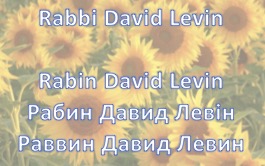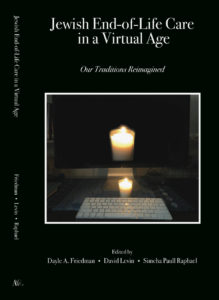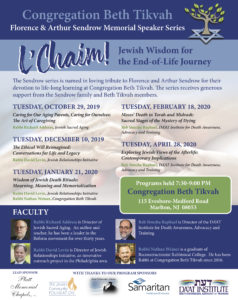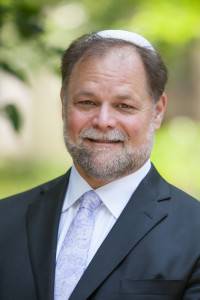 Parshat Devarim
Parshat Devarim
Did I make a difference?
This timeless question is in Moses’ heart as Devarim, the first parsha of Deuteronomy, as he recounts the trials and tribulations from Egypt to the edge of the Promised Land.
He has led the people faithfully, but the old generation is gone. Moses prepares for his death, Joshua is appointed the new leader and a new generation of people formed and steeled in the crucible of the Midbar prepares to move forward, leaving Moses behind.
Moses’ recollections are slightly different than what we read as things occurred along the journey. Despite pushback from the people and God, he places himself in the spotlight as the true champion in every circumstance.
Elie Weisel suggests, “Some stories are true that never happened.” Indeed, memories often are the recalling of experiences based on the values that helped us understand those experiences and shaped us.
It has been an often-fraught relationship, with the people wanting to rebel and turn back, factions acting out against Moses and Moses saving the people from God’s wrath. Moses recounts things through the filter of his memory and the desire to be remembered for his accomplishments as the person who brought B’nei Israel into nationhood and to the Promised Land, following God’s direction. But now, it is Joshua’s turn as God’s chosen successor.
We sense the tension in the transition as Moses recounts the extraordinary experiences thus far under his tutelage. Although we consider Moses most humble, even he needs to see that his time has meaning, his life was for a purpose and the people he served appreciate all he has done.
We are on the verge of a new chapter. At the edge of the Promised Land, the needs are different. New and fresh leadership is required to meet the new tests, the challenges of a new generation and the new enterprise of taking the land and dwelling in it. But this transition is often abrupt and dismissive, without the respect the elders have earned.
Can we elevate the process by offering sincere gratitude and recognizing this as a “shehecheyanu” moment? Can we maintain a respectful place for those soon-to-be former leaders as curators of wisdom and institutional memory? This kind of transition is a process, not a moment. And the lessons of the Torah are timely. Change a name and the setting, and we are talking about us.
The pandemic accelerated many changes already underway in our culture and society. Legacy institutions have struggled with membership and age; leaders are finding they do not speak a language that resonates with the next generation to engage them successfully; identity is more fluid than ever.
For many clergy leaders, the time has come to leave the pulpit and make way for the new group of leaders. Can we find ways to usher this change along, honoring the past while looking to the future? I suggest that although the methods may differ, the Torah’s enduring values remain constant.
We will lose much if we cannot embrace the old while turning toward the new. It is about giving our people both roots and wings, to liken it to parenting.
It validates who we as parents are, the nurturers and teachers. The values they learn are the values we taught. The ability to find meaning is grounded in the world in which we raised them. This is a moment of extraordinary challenge, and the opportunities are practically unlimited. We brought them along on this remarkable journey to this particular point.
Now they, the next generation, must move forward, leaving us behind, but carrying us in their hearts and minds. This is the underlying message of the phrase, Zichronam Livracha, may their memories be for a blessing.
May we live our lives to bring honor to a tradition grounded in morals and ethics and understand that we live in service to something greater. And may the next generation honor us by doing the same.
This piece was originally published by the Jewish Exponent.






